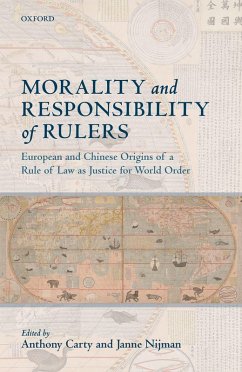The history of ideas on rule of law for world order is a fascinating one, as revealed in this comparative study of both Eastern and Western traditions. This book discerns 'rule of law as justice' conceptions alternative to the positivist conceptions of the liberal internationalist rule of law today. The volume begins by revisiting early-modern European roots of rule of law for world order thinking. In doing so it looks to Northern Humanism and to natural law, in the sense of justice as morally and reasonably ordered self-discipline. Such a standard is not an instrument of external monitoring but of self-reflection and self-cultivation. It then considers whether comparable concepts exist in Chinese thought. Inspired by Confucius and even Laozi, the Chinese official and intellectual elite readily imagined that international law was governed by moral principles similar to their own. A series of case studies then reveals the dramatic change after the East-West encounters from the 1860s until after 1901, as Chinese disillusionment with the Hobbesian positivism of Western international law becomes ever more apparent. What, therefore, are the possibilities of traditional Chinese and European ethical thinking in the context of current world affairs? Considering the obstacles which stand in the way of this, both East and West, this book reaches the conclusion that everything is possible even in a world dominated by state bureaucracies and late capitalist postmodernism. The rational, ethical spirit is universal.
Dieser Download kann aus rechtlichen Gründen nur mit Rechnungsadresse in A, B, BG, CY, CZ, D, DK, EW, E, FIN, F, GR, HR, H, IRL, I, LT, L, LR, M, NL, PL, P, R, S, SLO, SK ausgeliefert werden.


